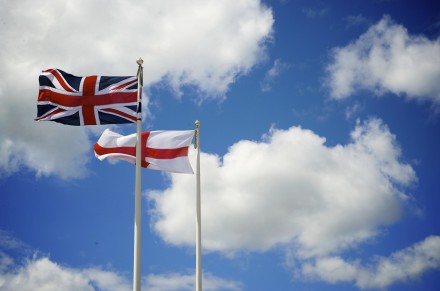
Four new bank holidays, celebrating the four constituent patron saints from around the UK, has long been a commitment made by Jeremy Corbyn, and this year’s St George’s Day provided him with another opportunity to publicise the 2017 manifesto pledge.
Presently the UK provides for eight bank holidays, although those in Scotland and Northern Ireland receive nine and ten respectively. Ours is the lowest number in the EU, where the average for public holidays is just over 12 – almost a week more than workers in England and Wales receive.
Bank holidays are normally taken as a part of a workers 5.6 weeks of paid holiday entitlement, equivalent to 28 days for an employee working full-time Monday to Friday, guaranteed by the Working Time Regulations.
The 5.6 weeks of paid holiday entitlement must be provided to employees and workers; it is unlawful for a worker continuing in employment to be paid rather than taking their leave. Those who are self-employed are in a different situation – they take leave when they want, in principle, and are not paid for it. The difficulty facing many workers, particularly younger workers in the so-called gig-economy, is that they are being labelled them as self-employed. This saves employers various taxes and responsibilities, and denies workers their right to paid holiday leave.
The problem here is very much one of enforcement. When workers raise complaints over being wrongly classed as self-employed and denied holiday pay through an employment tribunal, they normally succeed. But some workers don’t know they can do this, some assume that because they have signed a contract stating they are self-employed that’s the end of the matter, many don’t want to rock the boat and risk not being offered future work, and until very recently many could not afford the fees the Tories made them pay upfront to take a case to a tribunal, where enforcement of tribunal awards is very difficult.
This has always been a problem, historically associated with the building trade. But modern styles of working – and particularly the large internet-based companies that use a “platform” model – are increasing the numbers of workers who are affected by this issue. Legal rights are being removed by unscrupulous employers who take advantage of technological changes to working arrangements.
To tackle this, it is necessary for enforcement to take place by the government. One of the most important labour reforms proposed in Labour’s manifesto is the commitment to setting up a dedicated Ministry of Labour. Among other things, the department would be responsible for taking up such enforcement. This would take the pressure off workers who face many difficulties in raising this as an issue, and would also lead to businesses facing punitive fines for repeated violations (another Labour manifesto commitment).
A similar process already exists for national minimum wage enforcement, where the Department for Business, Energy and Industrial Strategy investigates potential abuses both of its own initiative and from tip-offs. They can name and shame companies which violate the law and issue fines. Enforcement mechanisms like this are the best way of ensuring the most vulnerable workers have their rights protected – expecting society’s most vulnerable to do this for themselves will always result in exploitation.
The Tories make no such commitments. Officially the Conservative manifesto says they are waiting for the outcome of a review to see how those working in the gig economy should be treated, but they also state categorically that “these workers [in the gig economy] are officially classed as self-employed”. This is simply incorrect as a matter of law – see for example the Court cases lost by Uber and Pimlico Plumbers – where they are almost always classed as workers, and therefore entitled to many rights, including paid annual leave.
Whilst we look forward to additional bank holidays, we should also celebrate the introduction of real enforcement of paid annual leave for all workers, backed up by a strong government enforcement mechanism.




More from LabourList
Government abandons plans to delay 30 local elections in England
‘The cost of living crisis is still Britain’s defining political challenge’
‘Nurses are finally getting the recognition they deserve’